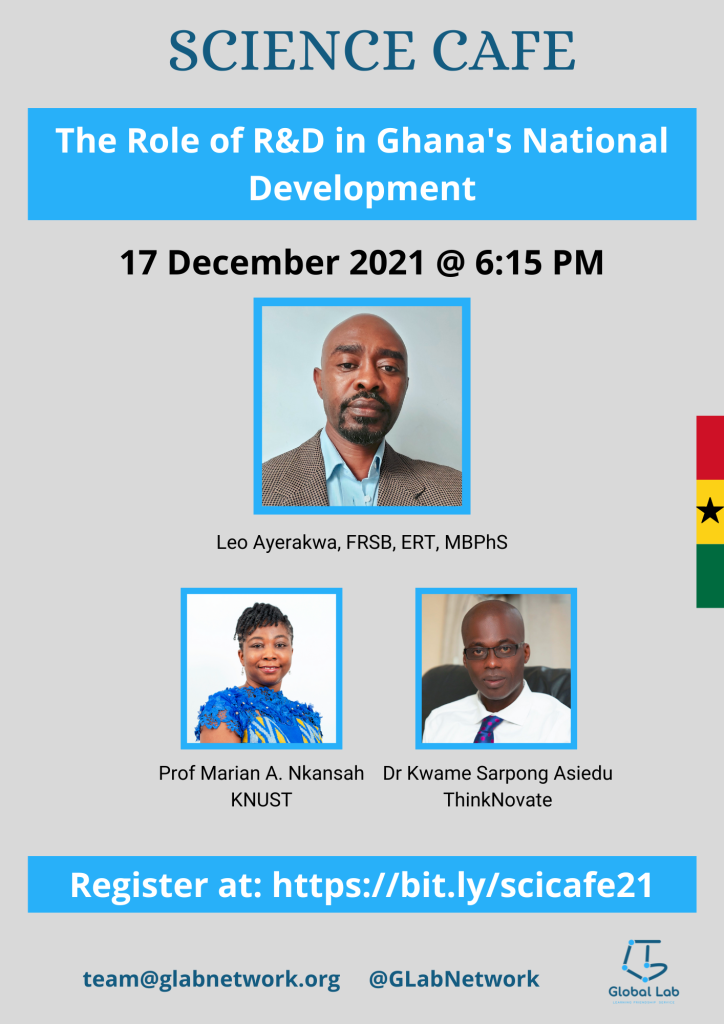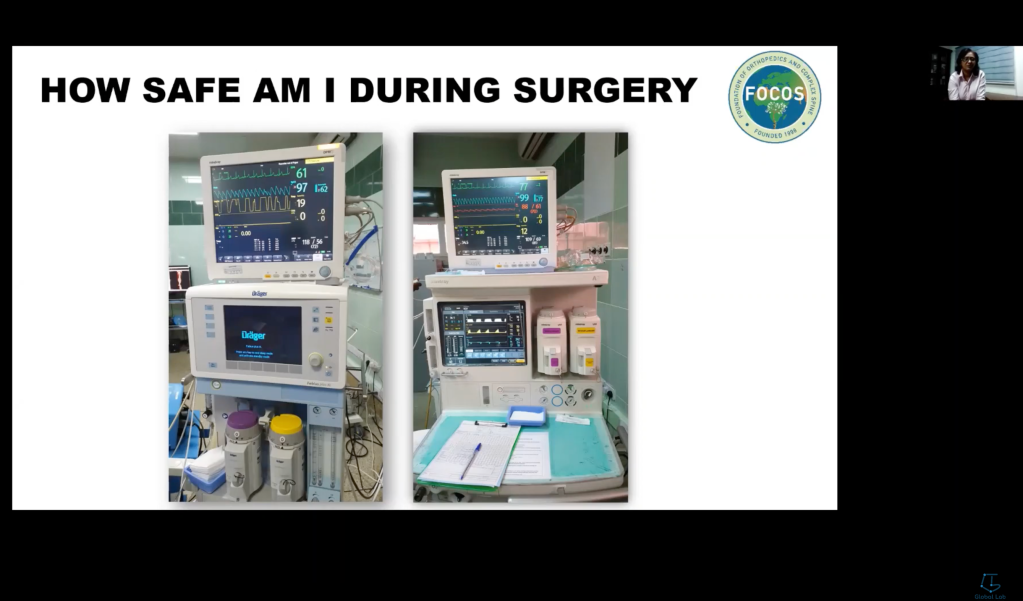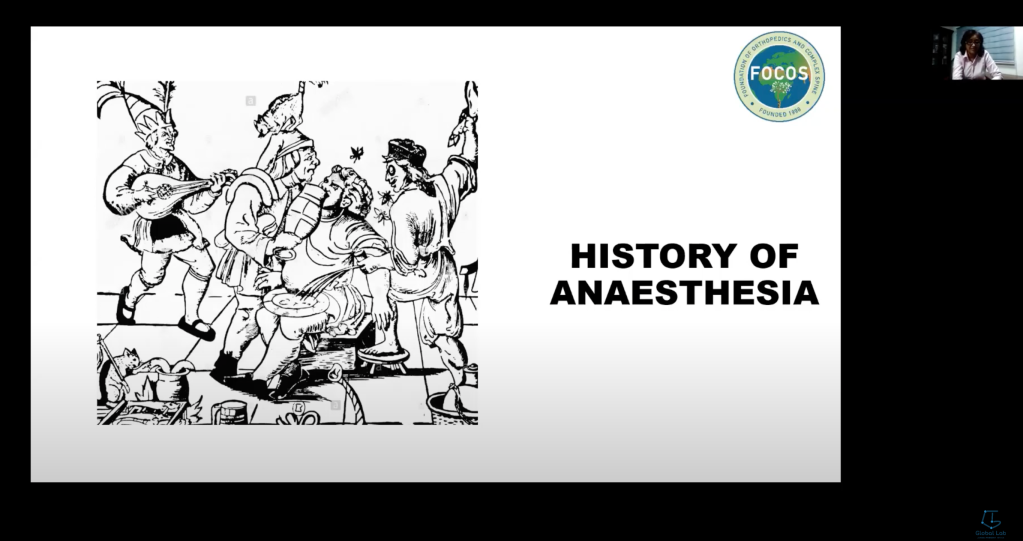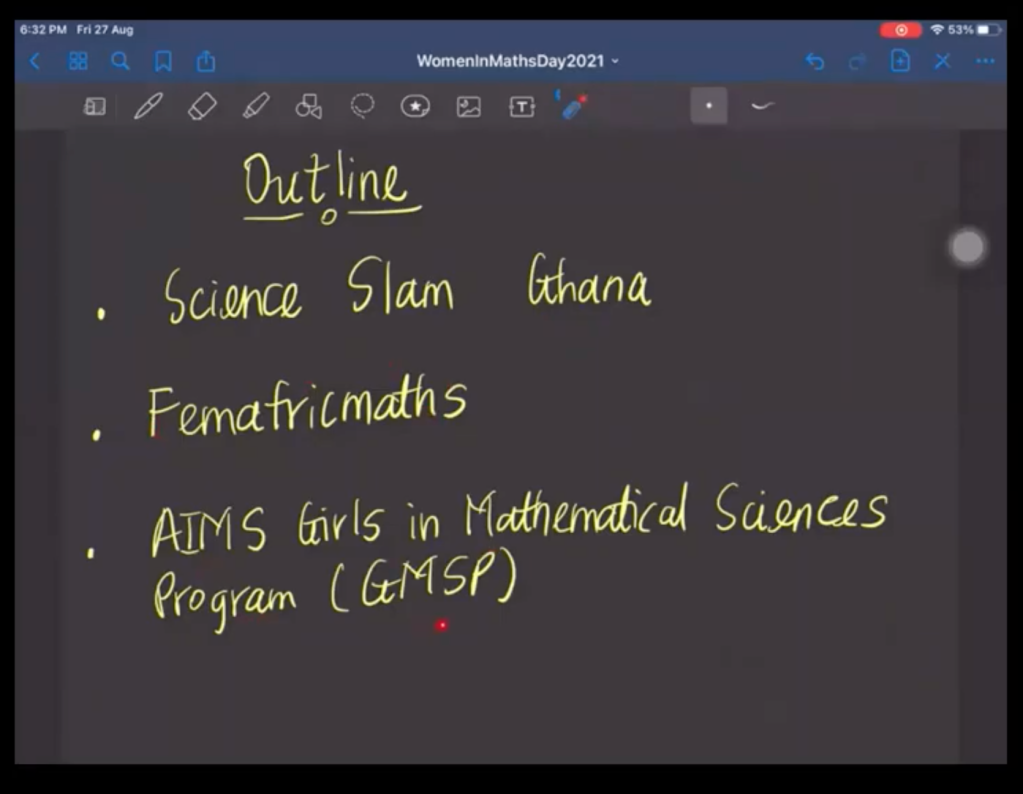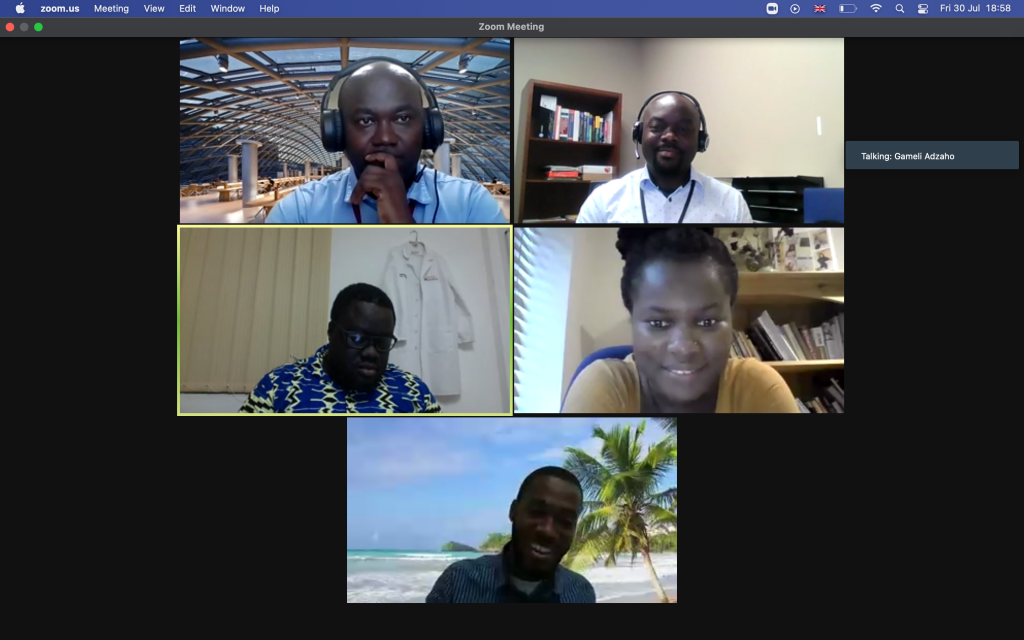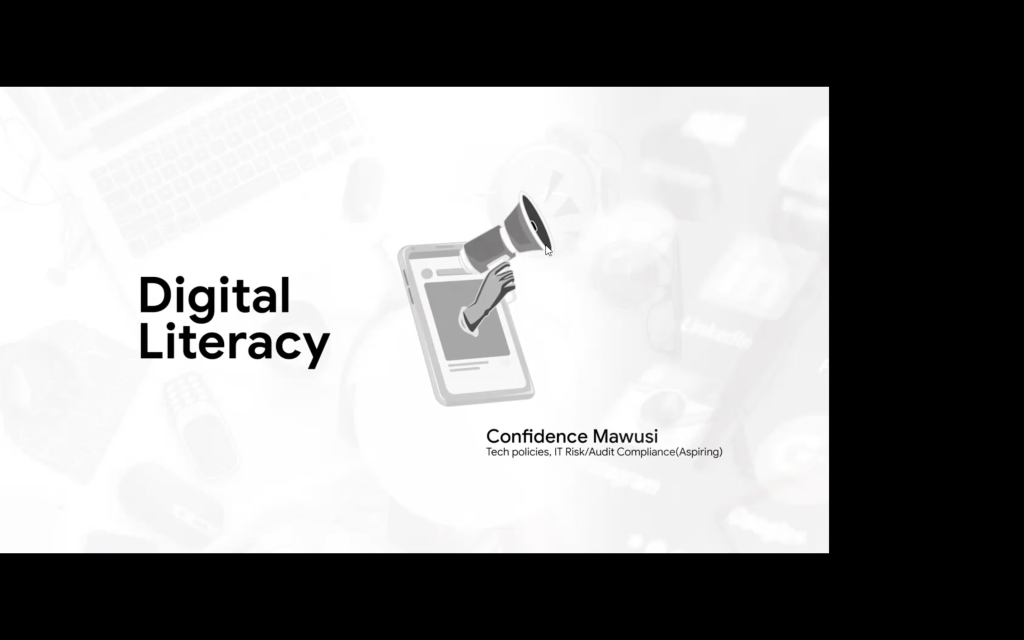Global lab Network hosted its first Science Cafe of the year on 28th September 2023. The topic for the event was, ‘Geophysics as a Tool for Achieving the Sustainable Development Goals in Ghana’. The topic was presented by Dr. Cyril Boateng a geophysicist who holds a PhD from the University of the Chinese Academy of Sciences (UCAS) under the CAS (Chinese Academy of Sciences)-TWAS (The World Academy of Sciences) Presidential Fellowship. He now works as a Lecturer and Researcher at the Department of Physics of Kwame Nkrumah University of Science and Technology, KNUST. The event sought to delve into the role geophysics can play and has played in achieving the SDGs in Ghana. The SDGs
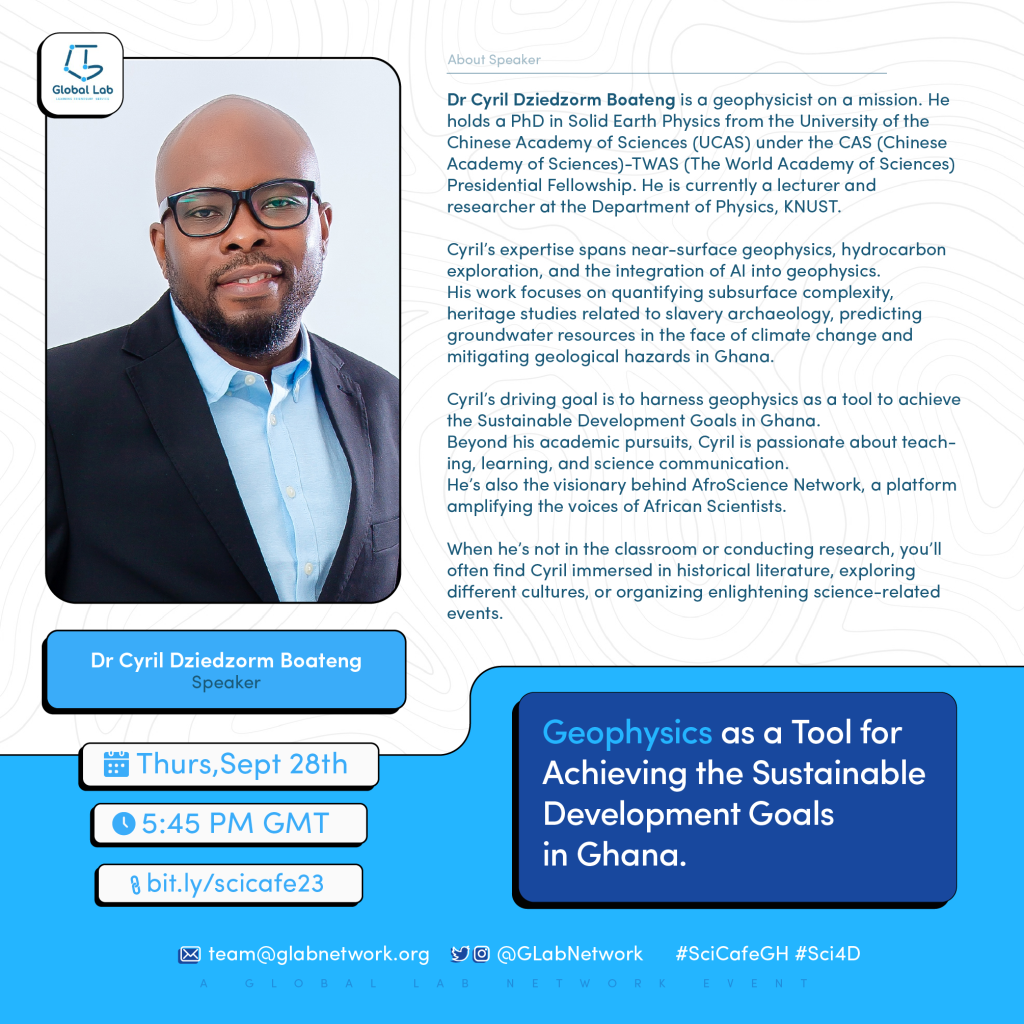
The event commenced with an icebreaker, a show and tell game, kick starting the event for an engaging presentation on the role of geophysics in attaining the sustainable development goals (SDGs). Mr. Gameli introduced Global Lab network as a bridge between the scientific community and the society. He emphasized on how Science is not finished until effectively communicated and the significance of effectively communicating science.
Defining Sustainable Development Goals and Geophysics
Dr. Boateng introduced the audience to the 17 sustainable development goals and then went on to define Geophysics. He defined geophysics as an interdisciplinary branch of earth science that utilizes physics, mathematics, geology, and computer science to study the earth’s structure and composition. He went on to further explain that geophysics employs techniques such as seismology and geomagnetism to measure the Earth’s physical properties and understand its behavior.
Geophysics is an interdisciplinary branch of earth science that utilizes physics, mathematics, geology, and computer science to study the earth’s structure and composition.
Practical use of geophysics
Dr. Boateng highlighted several practical applications of geophysics, indicating its significance in achieving the SDGs:
- Archaeological Investigations: Geophysics plays an important role when it comes to conducting surveys for archaeological investigations especially those related to slavery in the southeastern part of Ghana. Dr. Boateng stated, ‘To understand the present, we must study the past because the chains of the past still binds us’. This contributes to SDG 4 (Quality Education) by providing training to students and introducing the subject to the community.
- Community outreach: Dr. Boateng emphasized community engagement and outreach on aligning with SDG 10 (Reduced Inequalities); past history should be kept alive to track their growth overtime in order to build a sustainable future. This aligns with SDG 11 (Sustainable Cities and Communities.
- Groundwater Availability Prediction: An AI-based system predicting groundwater availability benefits farmers for irrigation and enabling sustainable agriculture and also for community use aligning with SDG 2 (Zero Hunger and SDG 6 ( Clean water and sanitation)
- Coastal Erosion mitigation: Geophysics aids in protecting coastal communities from losing heritage and natural resources while also facilitating sustainable and efficient exploration for minerals, oil, and gas aligning with SDG 13(Climate action)
- Forensic Investigations: Geophysics supports police investigations by providing targeted searches for forensic crime detection.
To understand the present, we must study the past because the chains of the past still binds us
Dr. Cyril Boateng
During the event, some attendees raised pertinent questions:
- One asked about the role of geophysics in addressing floods in cities during the rainy season. Dr. Boateng explained its contribution to understanding subsurface conditions and optimizing underground drainage systems.
- Another inquired on expanding research, collaboration with agencies for practical models, and measures for earthquake resilience. Dr. Boateng highlighted funding opportunities for large scale research, collaborations with agencies like NADMO, and the need for practical application of research findings.
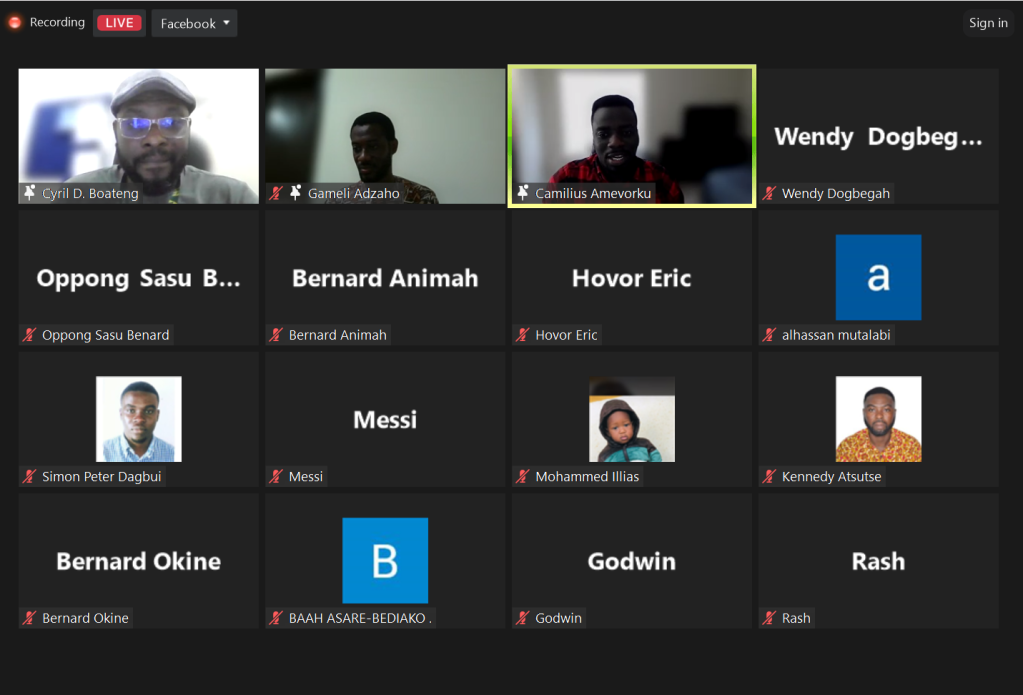
cross section of the participants on the call
In conclusion, Geophysics plays a crucial role in addressing multiple Sustainable Development Goals ranging from education and community engagement to environmental protection and disaster preparedness. It enables us to understand the Earth’s subsurface, predict natural disasters, and contribute to sustainable development.
Watch the full discussion in the video below and check out our Science Cafe for videos of our previous discussions. Our next event for the year, Community Event , will be held on 18th November 2023. A Movie & discussion programme will be held at Academic City University where the movie titled, The man who knew infinity would be shown, followed by an interactive discussion on the movie. Register for the next event by clicking You’re also welcome to join our Facebook group or follow our Twitter feed to get quick updates on this and future events/activities.
https://www.facebook.com/plugins/video.php?height=314&href=https%3A%2F%2Fweb.facebook.com%2FGLabNetwork%2Fvideos%2F1831586067297852%2F&show_text=false&width=560&t=0



